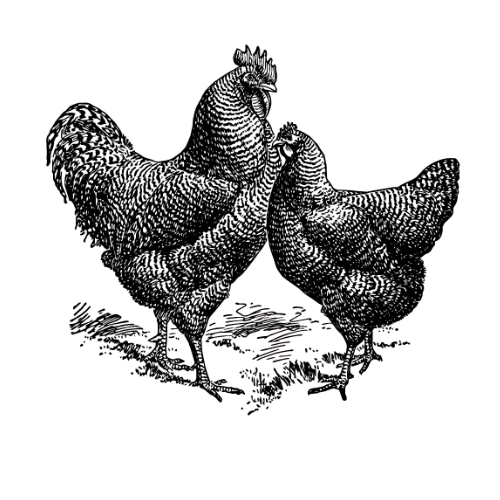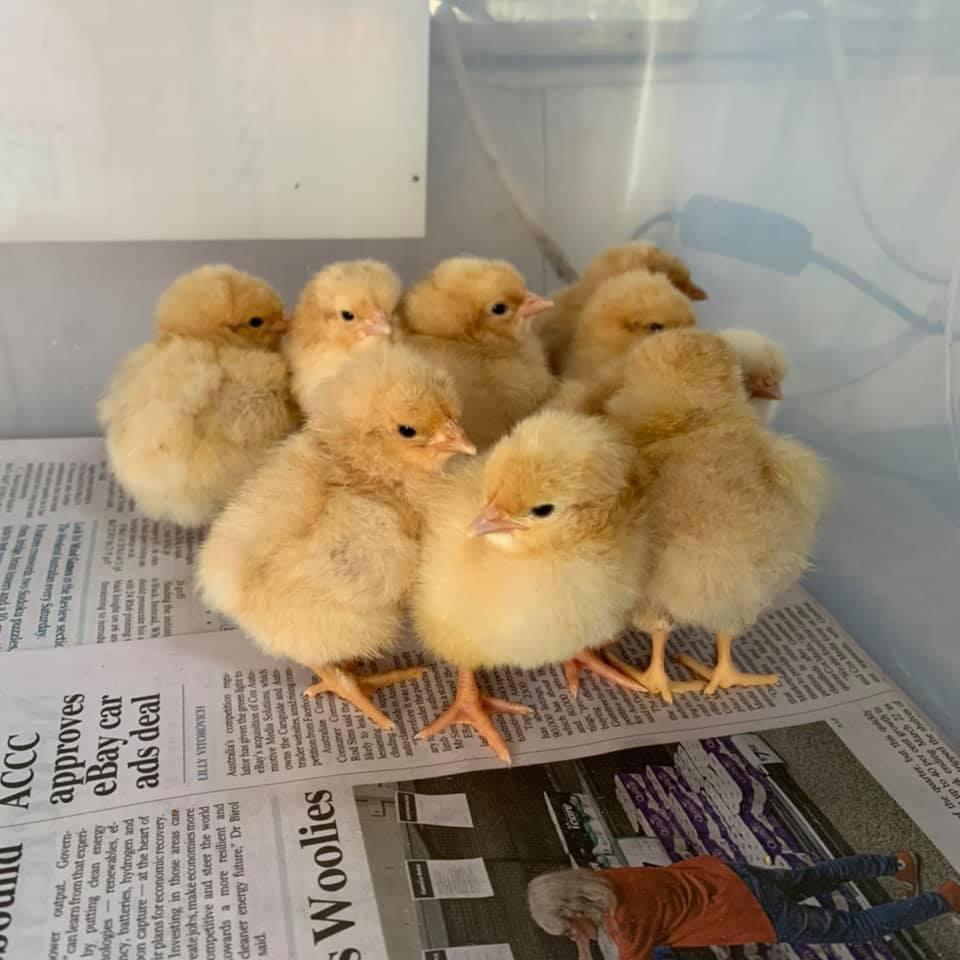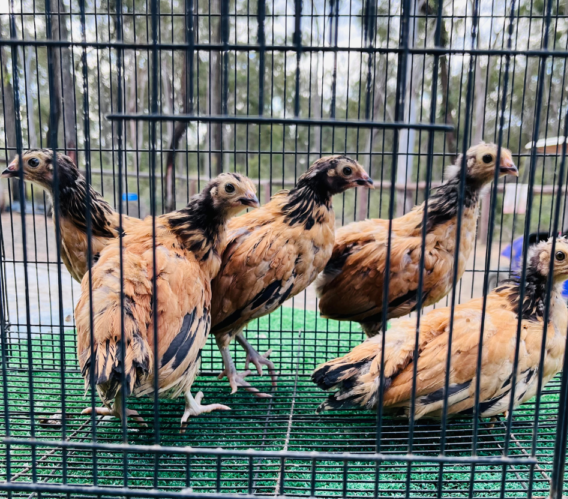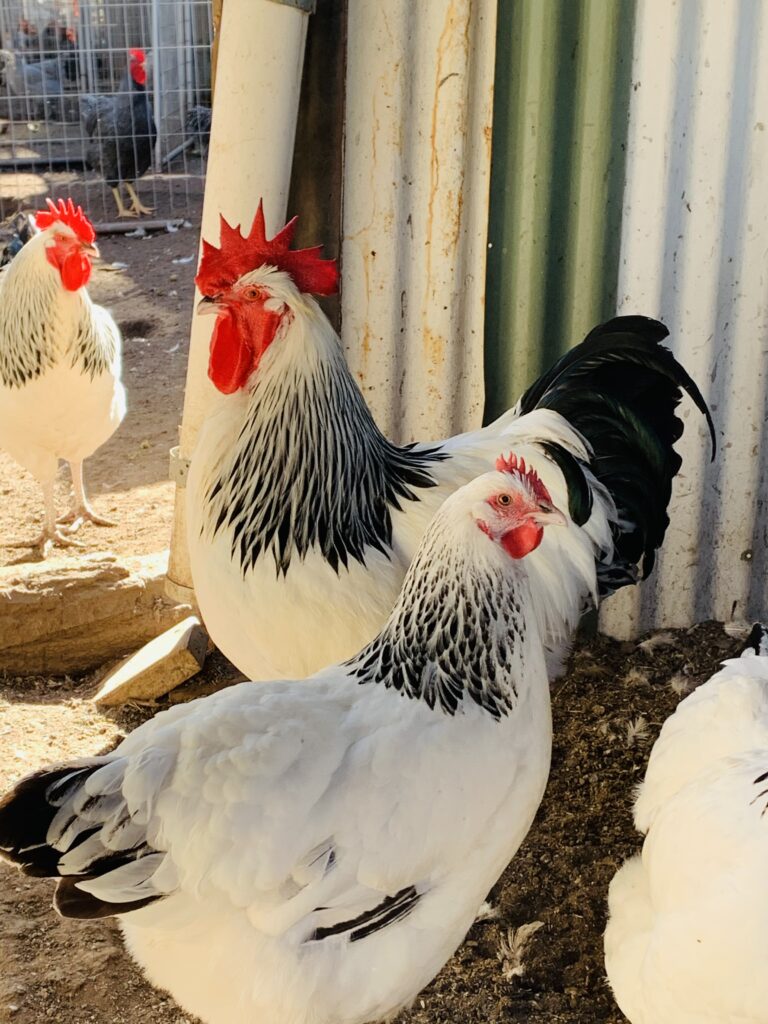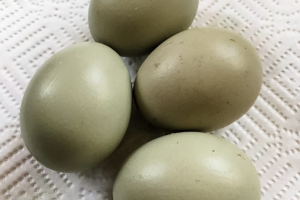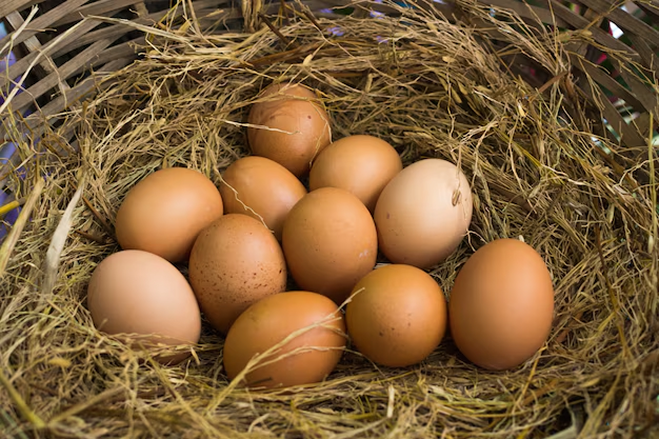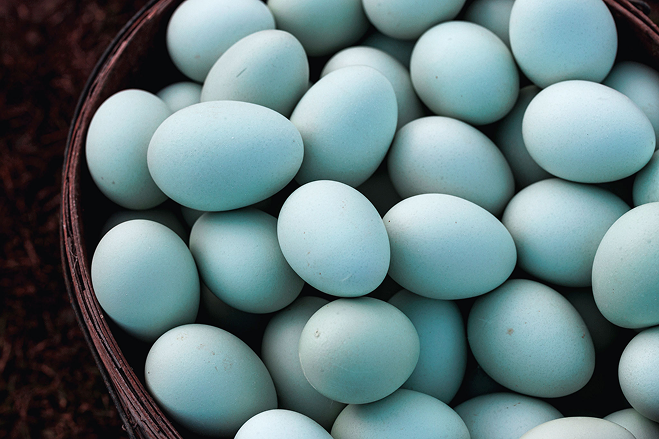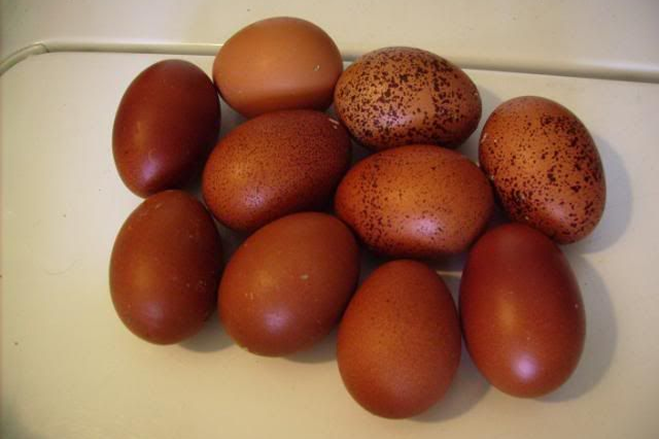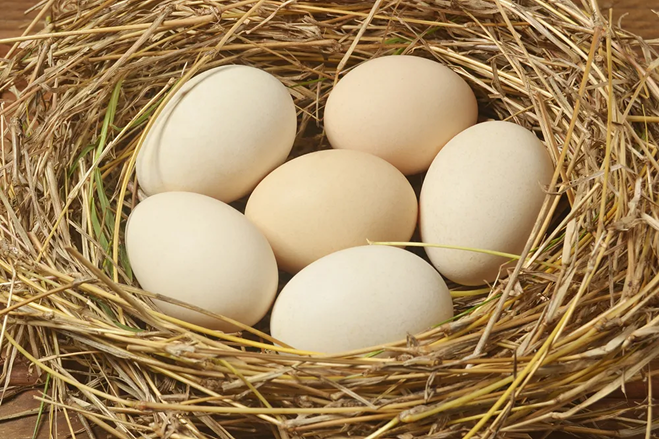Are you after Rainbow Eggs?
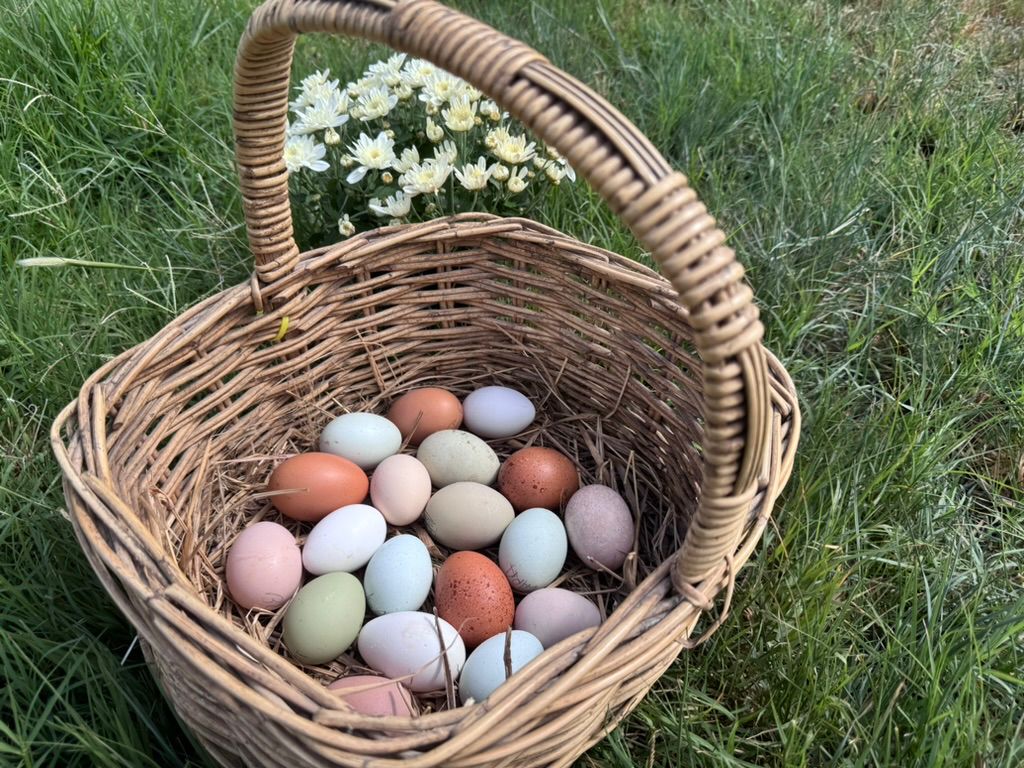
You may be accustomed to seeing brown and white eggs at the store, but some breeds lay blue eggs, others green, others deep chocolate brown, cream-colored and almost everything in between! We adore the variety of colours we get from our flock.
Are you after Rainbow Eggs?
These are the breeds to look at if you want an especially colourful egg basket:
Olive eggs
Dark brown eggs
Blue eggs
Chocolate brown eggs
Pinkish brown eggs
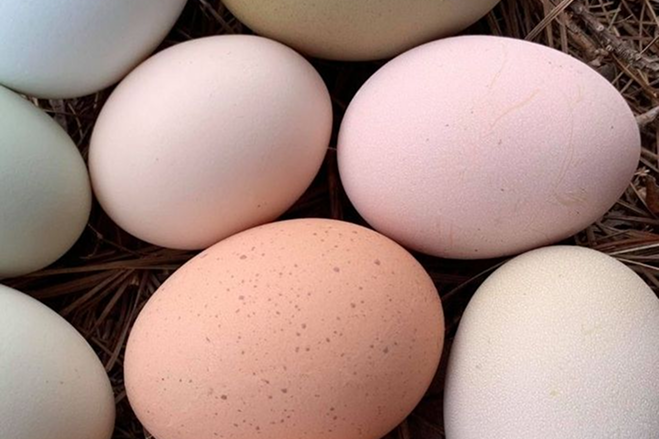
Plymouth Rocks, Orpingtons, Salmon faverolles
Cream-colored eggs
White eggs
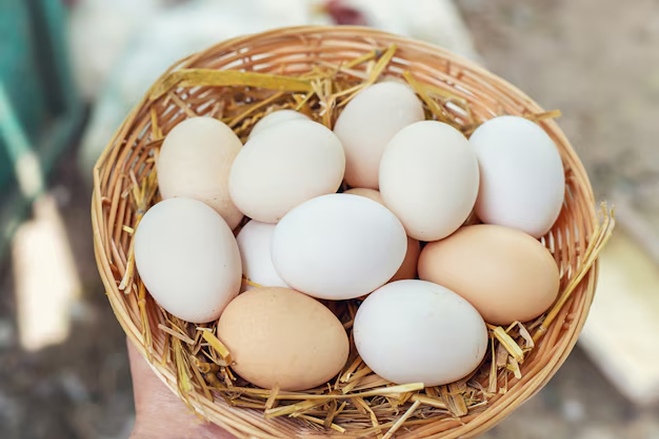
Leghorns, Brown, White Silver Spangled Hambugerh, Polish
